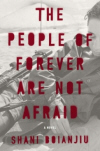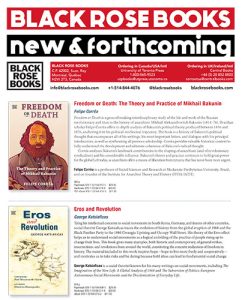The People of Forever are Not Afraid
Shani Boianjiu’s The People of Forever are Not Afraid is different from anything I’ve read and informative about a way of life that people outside of Israel are probably unfamiliar with. It is a story of three female friends—Yael, Avishag and Lea—during and after their obligatory military service, and the effects that service has on their lives. It is unlike the usual coming-of-age story, though the girls are young, in their twenties at their oldest. They come from a nondescript town, consisting of nothing but buildings, near the Lebanese border. Not only is the scenery bleak, but the service at remote checkpoints is full of boredom and brutality as well. Consequently, they come out of service brutalized and almost devoid of feelings. This is the effect of nonstop war becoming normal.
Shani Boianjiu’s The People of Forever are Not Afraid is different from anything I’ve read and informative about a way of life that people outside of Israel are probably unfamiliar with. It is a story of three female friends—Yael, Avishag and Lea—during and after their obligatory military service, and the effects that service has on their lives. It is unlike the usual coming-of-age story, though the girls are young, in their twenties at their oldest. They come from a nondescript town, consisting of nothing but buildings, near the Lebanese border. Not only is the scenery bleak, but the service at remote checkpoints is full of boredom and brutality as well. Consequently, they come out of service brutalized and almost devoid of feelings. This is the effect of nonstop war becoming normal.
This approach is strangely objective; the characters are viewed as though from a distance even when the perspective is the first-person “I.” The reader does not identify with any of them, and though the perspective changes from one to another, for a while the girls seem interchangeable. Only late in the book do we clearly sort out their differences of background and behavior. Similarly, although there is progression of years from beginning to end, there is no linear story but rather events that burst out of boredom. And the last sentence takes us back to the beginning.
Except for a few historical dates and names given, most of the violent events are not identified by date and only in passing by place, making the story more disturbing, less limited by particulars. The only reason for mentioning a particular war is the disbelief that a war would develop, but it does: “He was wrong about the war because then there was one. You can look it up. The second Lebanon war. July 12, 2006.” In this unsentimental story, the end’s brief reunion of these friends nevertheless shows their relationship as the strongest in their lives, if only from their memories of early schooling together.
Boianjiu does not underscore the violence but mostly brushes up to it, as if finding it unnecessary to fill in the scene. She shows opposite situations: a dangerous looking man who doesn’t do anything and an ordinary scene developed cinematically—stopped in a traffic jam, a mother repeats to her daughter to close the car window, as it’s raining, and then suddenly out of nowhere a man approaches and shoots. Hence the overall tone comes close to being dark and horrific but isn’t, instead reflecting the norm.
The author applies the same phrases to different situations, in order to echo the “forever” in the title—the same words repeated forever. Her style is mostly straightforward but sometimes stands out with unique, often fitting imagery, like the sun “exploding” on a person.
The story starts with the girls in school before their military experience. The girls are not that close; Lea is in a different group, and Yael and Avishag break apart when Yael falls for Avishag’s brother Dan. Shortly after going into the military, Dan commits suicide, which sets the tone of the book. After their mothers leave the story, the girls almost blend together in their aloneness. In that age group they care only about themselves and resent that quality in each other:
It seems he is only interested in killing himself, and slowly. He doesn’t care about killing me. It makes me sad that he cares about himself more than about me. Say I am just not being realistic, but it still makes me sad when people are like that. Most people are that. Dan was like that, in the end. Only interested in killing himself. . . . What kills me is that I have no one to talk to.
We learn the young Israeli checkpoint soldier’s attitude towards Palestinians, Lea in this case:
We needed them [Palestinian construction workers], but we were also afraid they’d kill us or, even worse, stay forever. . . . We were there to notice what the government wanted us to, dangers, but I would still only notice what I happened to notice. This is because I couldn’t realize I was a soldier. I thought I was still a person.
Missiles were falling, as they tended to do where we lived, since always. We listened to the exit booms and waited for the explosions. We had heard them so many times before, we were pretty good at guessing where they would fall. We saw the thick gray in the sky and it was likes seeing the same sky we used to see when we were little, like we were still little.
This book is personal without being emotional, making us understand powerfully what the three main characters, and many Israelis, are going through.





